“We Now Have Relative Peace” ; Changing Conflict Dynamics in Northern Karamoja, Uganda
Kimberly Howe
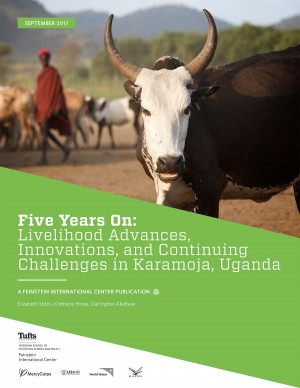
Five Years On: Livelihood Advances, Innovations, and Continuing Challenges in Karamoja, Uganda
The report is part of an evaluation of the Growth, Health and Governance Program, that measures changes in product service utilization and livelihood development and pragmatic innovations in Karamoja region.
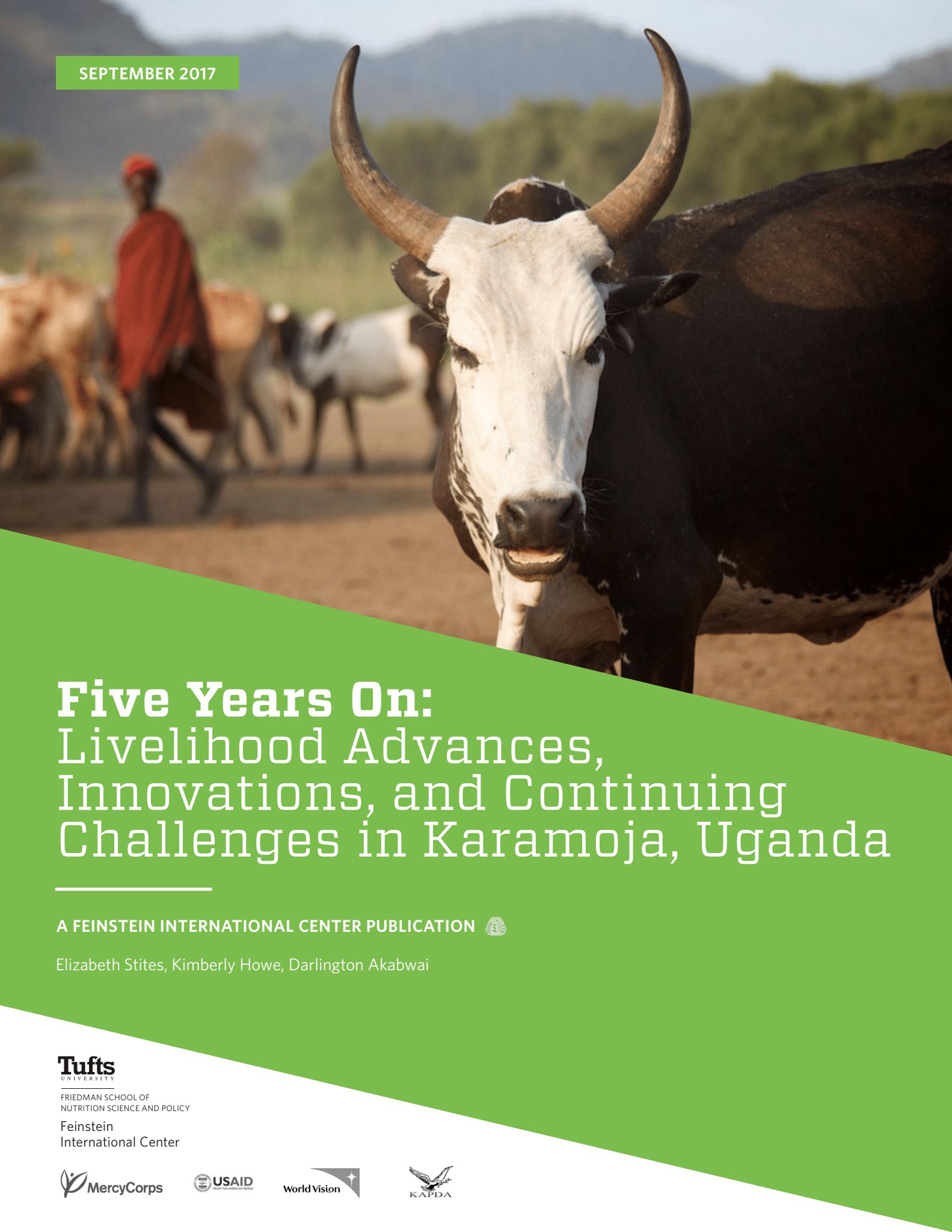
Five Years On: Livelihood Advances, Innovations, and Continuing Challenges in Karamoja, Uganda
A quantitative analysis of a representative group of villages indicates that there has been a widespread increase in the utilization of services as well as improvement to well-being for residents of northern Karamoja since 2013
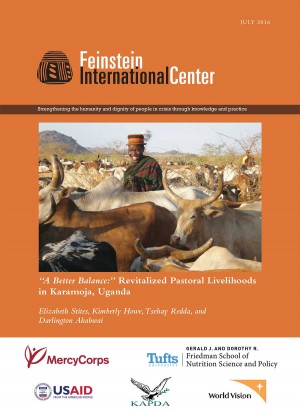
A Better Balance: Revitalized Pastoral Livelihoods in Karamoja, Uganda
Livelihoods in Karamoja continue to change as security improves; this includes a revitalization of pastoral production for some households. This report details the findings from research undertaken in February and March 2016 in four districts of Karamoja aimed at better understanding the current patterns of pastoral and agro-pastoral production in the region.
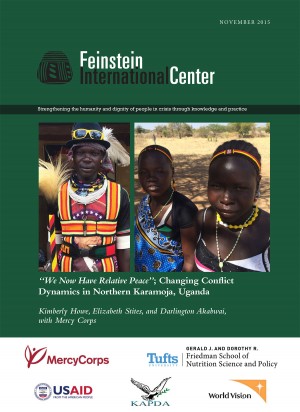
“We Now Have Relative Peace”; Changing Conflict Dynamics in Northern Karamoja, Uganda
This report reflects research from early 2015 conducted by the Feinstein International Center at the Friedman School of Tufts University and Mercy Corps in northern Karamoja, Uganda. The research examined changing conflict dynamics and related conflict mitigation and peacebuilding initiatives. The objective of the study was to provide a nuanced understanding of the current threats to security at the household, community, district and regional levels, and to examine how these dynamics have changed in recent years. The study examined conflict mitigation initiatives, including access to and efficacy of these systems.
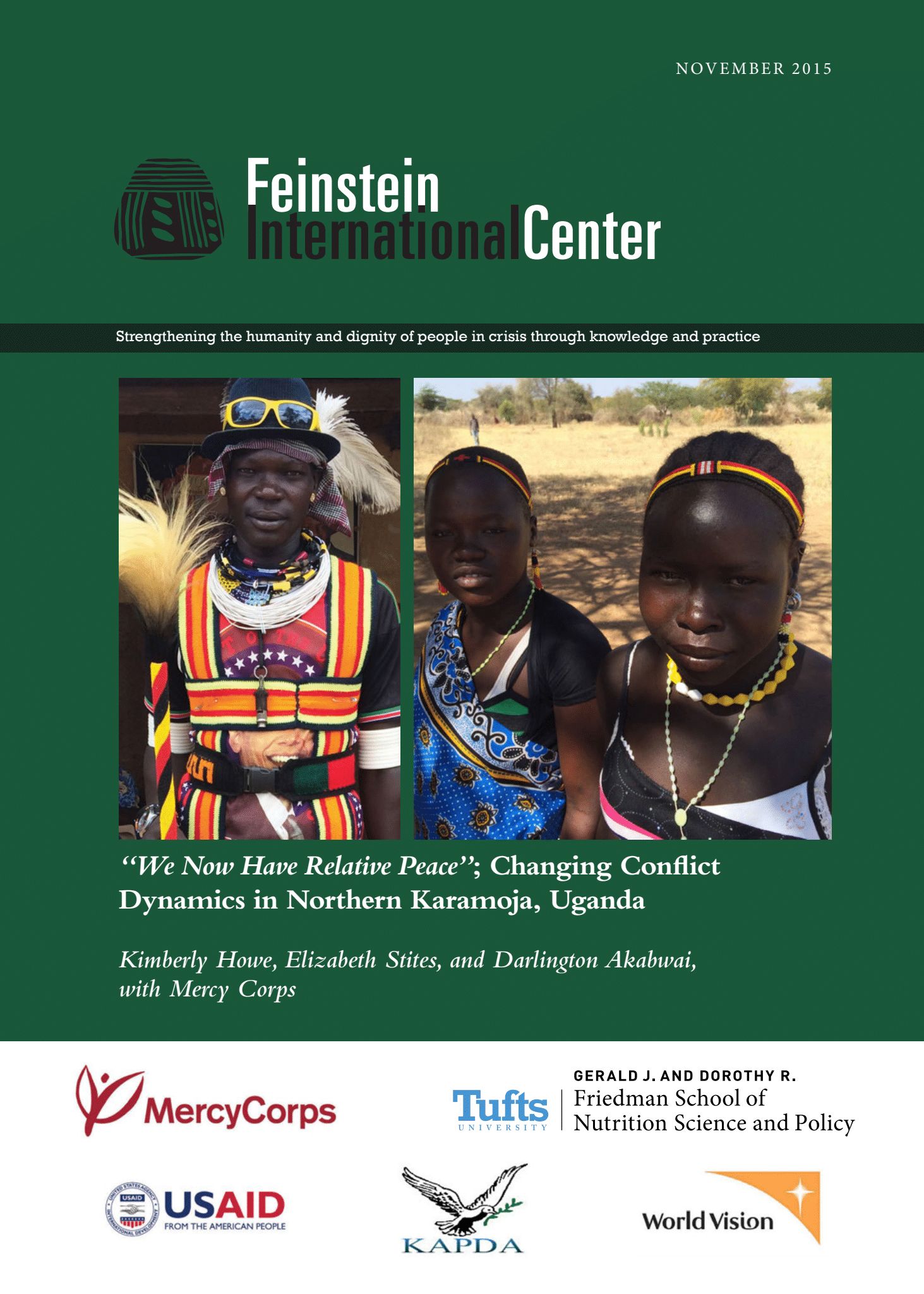
“We Now Have Relative Peace” ; Changing Conflict Dynamics in Northern Karamoja, Uganda
The objective of the study was to provide a nuanced understanding of the current threats to security at the household, community, district and regional levels, and to examine how these dynamics have changed in recent years.